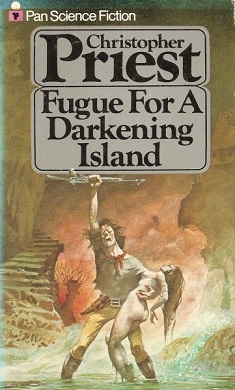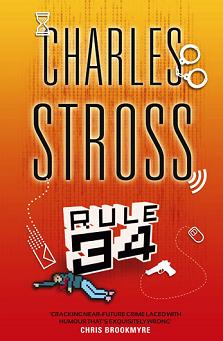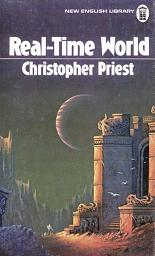
Fugue for a Darkening Island
Christopher Priest
125 pages
published in 1972
There are certain protocols you have to take into account as a reviewer when discussing the books of a new, young writer. Protocols that are still in effect when the author has aged more than forty years since the first publication of his novel and has become a grand old man in the meantime, prone to gently correcting younger writers. Anything that can be said about Fugue for a Darkening Island has to be tempered by the realisation that it is a fortytwo year old novel, not necessarily indicative of the writer Priest now is.
But the truth remains that Fugue for a Darkening Island is a problematic work, a novel with its heart I think in the right place, but which features certain unfortunate themes in Priest’s work that will return in later novels, somewhat muted. I’m thinking of last year’s The Adjacent, featuring a near future Islamic Republic of Great Britain as well as the much earlier A Dream of Wessex which had parts of Britain as a caliphate, but also of The Separation and its naive story of a better world created by a separate peace between nazi Germany and Britain. In short, Priest sometimes goes for settings you’d sooner expect to see in the stories of the more reactionary Baen writers and A Fugue for a Darkening Island is one of those novels, a near future Britain ripped straight from the front pages of National Front propaganda, as the country is flooded by a never ending stream of African refugees destroying the British way of life, its hero a decent middleclass Englishman trying to find a new home for him and his family.

